Government locum tenens work offers similar perks as conventional locum tenens positions, such as flexibility, travel opportunities and diverse medical experiences. However, there are some fundamental differences between government and private sector jobs that can radically affect the experience you have.
To start, government locum tenens jobs tend to last longer - generally lasting between three months to one year. Additionally, clinicians typically work in facilities that target underserved groups like Native Americans or veterans of a specific branch of the military. These facilities include DOD (Department of Defense) facilities, Veterans Affairs facilities, Indian Health Services, and other federal or state facilities, like prisons or behavioral health hospitals. Primary care and psychiatry are the top specialties in demand at these facilities, although locum tenens clinicians of all specialties are sought after.
Are you thinking of taking on a locum tenens government job? Here are seven questions to ask during your job interview to ensure that you are thoroughly prepared:
1. What is the licensing and credentialing process for the position?
You typically won't need a new state license for federal jobs, but it is best to confirm with your locum tenens recruiter or provider. In fact, any current, non-restricted state licensing is usually sufficient for you to get the job. There might be additional credentials or certifications needed for the role, especially if this is your first locum tenens job. Again, check with your recruiter for any assistance with the licensing and credentialing process or information on required certifications.
2. What are the challenges with working in your particular facility?
Patients’ healthcare needs may be significantly different at a federal facility. Asking this question is your chance to get more insight into the unique demands and nuances of the role. According to a VISTA government recruiter, clinicians in this role may be assigned to remote facilities and treat patients for uncommon diseases and injuries. These facilities may also have limited access to medical resources, which forces clinicians to be resourceful with the care they provide.
3. What feedback has been given in the past to people in this role?
This is a very specific question that shows that you are interested in excelling at your role, while also seeking to understand what problems have existed previously. For example, former VISTA physicians who worked at government facilities offered advice for other clinicians considering work in the government sector to help them make their decision.
4. What does onboarding look like?
This is an ideal time to ask about training requirements, internal processes, EHR software, and so on. Because these assignments tend to be short in duration, training time is "of the essence." It is critical to know that there is a system or process in place to ensure you are sufficiently trained and prepared for your role.
5. What are the requirements for this role?
Beyond learning the licensing and credentialing requirements, this is your opportunity to ask about federal security clearances, background checks, malpractice insurance, and anything else that you might need to provide to land the position.
6. Do you provide any benefits for locum tenens government clinicians?
Besides the benefit of serving the community, most government positions offer other “perks” like job security, extensive travel opportunities, great pay for “bursts of work," loan repayment assistance, and various opportunities to gain experience and build your CV.
7. What is daily life like?
Locum tenens government jobs are traditionally associated with excellent work-life balance. For example, many assignments are outpatient jobs that offer regular schedules with little or no on-call work. This gives clinicians more time to pursue interests outside of practicing medicine.
Locum tenens government jobs are different from traditional locum tenens jobs in many ways. While there are inherent similarities, government positions typically have different requirements and offer distinct benefits. Be sure to ask these seven questions during their next interview to gain insight into your next locum tenens government role and position yourself for success.


